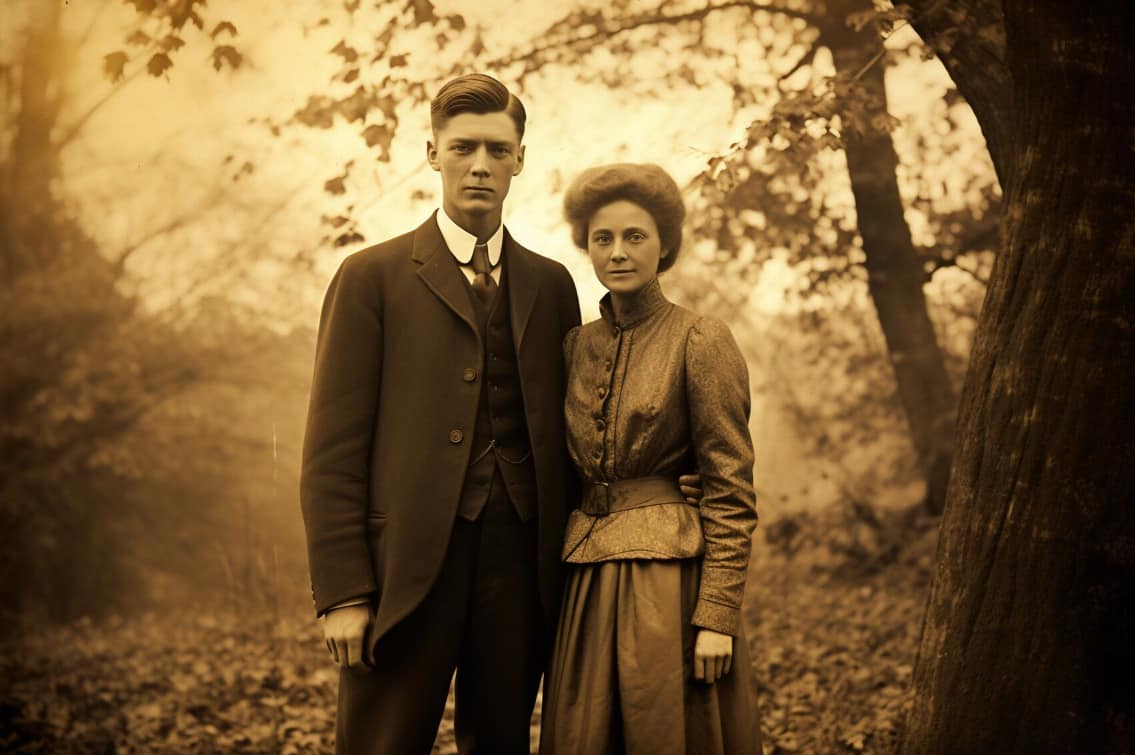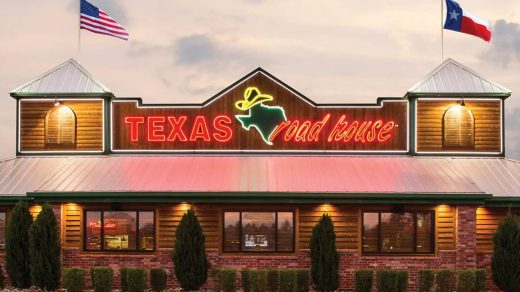In the mystical and tumultuous world of medieval Europe, the nick grasso and linda manchetti wedding 1090s stands as one of the most captivating love stories ever recorded.
During an era when marriages were carefully orchestrated political chess moves, their union emerged as a rare and precious gem – a perfect blend of genuine love and strategic alliance.
This wasn’t just another noble wedding; it was a celebration that would become legendary, inspiring tales, songs, and stories that would echo through the centuries.
The tale of Nick and Linda transcends the typical medieval marriage narrative.
In a time when personal feelings were often sacrificed at the altar of political expediency, their story proved that true love could flourish even within the strict confines of medieval society.
Their wedding wasn’t merely a display of wealth and power – though it certainly was that – but rather a testament to the possibility of finding genuine connection in a world that rarely prioritized matters of the heart.
Picture a world where castles pierce the sky, where knights in gleaming armor uphold codes of chivalry, and where the distinction between nobility and commoners is as clear as the moat surrounding a fortress.
Nick Grasso and Linda Manchetti Wedding 1090s

It was in this setting that Nick Grasso and Linda Manchetti’s love bloomed, defying expectations while simultaneously fulfilling their families’ deepest hopes.
A Glimpse into Life in the 1090s
To truly appreciate the magnitude of Nick and Linda’s love story, we must first immerse ourselves in the rich tapestry of medieval life during the 1090s.
This was a time of great transformation when Europe was awakening from the Dark Ages and entering a period of cultural and economic revival.
Social Structure and Daily Life:
The Medieval Social Pyramid:
| Class | Primary Roles | Privileges | Responsibilities |
| Nobility | Governance and warfare | Land ownership, legal rights | Military service, protection |
| Clergy | Religious leadership | Education, tax exemption | Spiritual guidance |
| Knights | Military service | Social status, land grants | Combat duty, loyalty |
| Merchants | Trade and commerce | Economic mobility | Guild obligations |
| Peasants | Labor and farming | Basic protection | Agricultural work |
The daily rhythm of medieval life was dictated by:
Seasonal Activities:
- Spring:
- Planting crops
- Religious festivals
- Marriage celebrations
- Summer:
- Harvesting
- Tournaments
- Trade fairs
- Autumn:
- Food preservation
- Harvest festivals
- Military campaigns
- Winter:
- Indoor crafts
- Religious observances
- Noble court gatherings
Cultural Elements of the 1090s:
- Religious Life:
- Daily prayer schedules
- Church festivals
- Pilgrimages
- Monastery influences
- Entertainment:
- Tournaments and jousts
- Storytelling traditions
- Musical performances
- Court celebrations
- Education:
- Monastery schools
- Court tutoring
- Apprenticeships
- Oral traditions
The Families and Their Legacy
The Grasso and Manchetti families were not merely wealthy nobles; they were influential forces that helped shape the medieval world. Their histories intertwined with the very fabric of society, making their union through Nick and Linda all the more significant.
The Grasso Family Dynasty:
Military and Political Achievements:
| Generation | Notable Accomplishments | Contributions |
| First | Establishment of territory | Military victories |
| Second | Expansion of influence | Diplomatic alliances |
| Third (Nick’s) | Cultural renaissance | Economic growth |
The Grasso family had built their reputation through:
- Military Excellence:
- Strategic battlefield victories
- Castle fortification expertise
- Training of elite knights
- Defense of realm borders
- Administrative Skills:
- Fair justice system
- Efficient tax collection
- Infrastructure development
- Public works projects
- Cultural Patronage:
- Support of artists
- Manuscript collection
- Musical patronage
- Educational initiatives
The Manchetti Legacy:
The Manchetti family’s influence extended far beyond their immediate territories:
Areas of Influence:
| Domain | Contributions | Impact |
| Trade | Established routes | Economic growth |
| Arts | Patronage | Cultural development |
| Education | Founded schools | Knowledge preservation |
| Diplomacy | Peace treaties | Regional stability |
Their achievements included:
- Economic Innovation:
- Banking systems
- Trade networks
- Market regulations
- Currency exchange
- Cultural Development:
- Artistic patronage
- Literary sponsorship
- Architectural projects
- Festival traditions
- Diplomatic Relations:
- International alliances
- Peace negotiations
- Trade agreements
- Cultural exchanges
Preparations: The Anticipation of a Grand Wedding
The preparation for Nick and Linda’s wedding was an undertaking of unprecedented scale, requiring months of careful planning and coordination. Every detail was considered, from the grandest feast arrangements to the smallest decorative elements.
Wedding Planning Framework:
Timeline and Milestones:
| Months Before | Major Tasks | Secondary Activities | Symbolic Meaning |
| 12 Months | Initial announcement | Family meetings | Public declaration |
| 9 Months | Venue selection | Diplomatic invitations | Sacred space choosing |
| 6 Months | Attire commission | Gift preparations | Status symbols |
| 3 Months | Feast planning | Entertainment booking | Abundance display |
| 1 Month | Final preparations | Rehearsals | Unity Celebration |
The Wedding Attire Creation:
Linda’s wedding dress became legendary for its craftsmanship:
- Main Elements:
- Pure silk from Constantinople
- Gold thread embroidery
- Pearl and gemstone embellishments
- Hand-painted details
- Symbolic Features:
- Family crests integration
- Protection symbols
- Fertility motifs
- Unity representations
Nick’s Ceremonial Garments:
- Components:
- Custom-woven wool tunic
- Ermine-lined cape
- Gold-worked belt
- Ceremonial sword
- Symbolic Elements:
- Family colors
- Knightly symbols
- Status indicators
- Religious motifs
Feast Preparations:
The wedding feast required extensive planning:
Food and Beverage Planning:
| Course Type | Items | Source | Preparation Time |
| Appetizers | 50+ varieties | Local/Imported | 1 week |
| Main Courses | 30+ dishes | Multiple regions | 3 days |
| Desserts | 25+ types | Special recipes | 5 days |
| Wines | 15+ varieties | Various regions | Months aging |
The Ceremony: Vows of Love and Loyalty
The wedding ceremony itself was a masterpiece of medieval pageantry and personal devotion. Taking place in the grand cathedral, it combined religious solemnity with romantic celebration.
Ceremony Structure:
- Pre-Ceremony Rituals:
- Morning prayers
- Blessing of the rings
- Purification rites
- Family gatherings
- Main Ceremony Elements:
- Professional
- Religious rites
- Personal vows
- Unity ceremonies
- Post-Ceremony Traditions:
- Blessing of the couple
- Community Celebration
- Symbol exchanges
- Family unification rites
Ceremony Symbolism:
| Element | Meaning | Implementation | Legacy |
| Ring Exchange | Eternal bond | Gold rings | Tradition continues |
| Candle Lighting | Divine presence | Unity candle | Modern adaptation |
| Cloth Binding | Union of families | Ceremonial cloth | Historical record |
| Crown Wearing | Noble union | Family crowns | Museum preserved |
Celebration and Feasting
The celebration following the ceremony was unprecedented in its scale and magnificence, lasting for seven full days.
Daily Celebration Schedule:
- Day One – Wedding Day:
- Morning ceremony
- Grand feast
- First Dance
- Gift presentations
- Day Two – Tournament Day:
- Knights’ competitions
- Archery contests
- Prize ceremonies
- Evening banquet
- Day Three – Arts Day:
- Minstrel performances
- Poetry recitations
- Dance exhibitions
- Storytelling sessions
- Subsequent Days:
- Community celebrations
- Religious observances
- Athletic competitions
- Cultural exchanges
Feast Arrangements:
| Day | Theme | Special Features | Entertainment |
| 1 | Royal Feast | Exotic dishes | Court musicians |
| 2 | Tournament Feast | Game meats | Knight displays |
| 3 | Cultural Feast | Regional foods | International performers |
| 4-7 | Themed Celebrations | Various specialties | Mixed entertainment |
A Marriage of Love and Purpose
Nick and Linda’s marriage represented more than just a union of two people; it became a model for how love and duty could coexist harmoniously.
Foundation of Their Partnership:
- Emotional Connection:
- Mutual understanding
- Shared values
- Deep Respect
- Genuine affection
- Political Alignment:
- Family interests
- Regional stability
- Economic cooperation
- Cultural exchange
- Personal Growth:
- Individual development
- Shared learning
- Mutual support
- Combined achievements
Keys to Their Success:
| Aspect | Implementation | Result | Modern Relevance |
| Communication | Daily discussions | Strong bond | Still essential |
| Respect | Mutual support | Lasting love | Universal value |
| Balance | Duty and love | Harmony | Modern challenge |
| Growth | Joint learning | Development | Contemporary goal |
The Legacy of Their Love
The impact of Nick and Linda’s union continued to resonate through generations, influencing both medieval and modern perspectives on love and marriage.
Historical Impact:
- Immediate Effects:
- Changed marriage customs
- Inspired love stories
- Influenced art
- Modified traditions
- Long-term Legacy:
- Family alliances
- Cultural changes
- Social reforms
- Literary inspiration
Legacy Components:
| Area | Impact | Duration | Modern Influence |
| Social | Marriage customs | Centuries | Contemporary views |
| Cultural | Artistic inspiration | Ongoing | Modern Romance |
| Political | Alliance model | Historical | Diplomatic relations |
| Personal | Family stories | Generational | Heritage Value |
Frequently Asked Questions
- Q: What made the Nick Grasso and Linda Manchetti wedding historically significant?
A: Their wedding represented a perfect blend of love and political alliance, which was rare in medieval times and influenced future marriage customs.
- Q: How long did the wedding celebrations last?
A: The celebrations continued for seven days, featuring various events including feasts, tournaments, and cultural performances.
- Q: What aspects of their wedding influenced modern marriage traditions?
A: Many elements persist today, including the exchange of rings, unity ceremonies, wedding feasts, and the combination of religious and personal vows.
- Q: How did their marriage impact medieval society?
A: Their union demonstrated that love marriages could successfully fulfill both personal and political objectives, influencing attitudes toward arranged marriages.
- Q: What made their love story unique for its time?
A: Unlike most medieval noble marriages, theirs combined genuine romantic love with political alliance, setting a new precedent for royal unions.
- Q: How was their story preserved throughout history?
A: Their story was documented through church records, family chronicles, artistic works, and oral traditions passed down through generations.
- Q: What lasting impact did their union have on future generations?
A: Their marriage influenced medieval views on love, inspired countless stories and songs, and established new traditions in noble marriages.
- Q: How did their families maintain their alliance after the wedding?
A: The families continued to support each other through political, economic, and cultural cooperation, strengthening their bond over generations.
Also Check:
Conclusion: Why Their Story Still Matters
The nick grasso and linda manchetti wedding 1090s remains relevant today as a testament to the enduring power of love to transcend social constraints and create lasting change. Their story teaches us that:
- Love can flourish within the duty
- Tradition can embrace innovation
- Personal happiness and social responsibility can coexist
- True partnerships can change society



